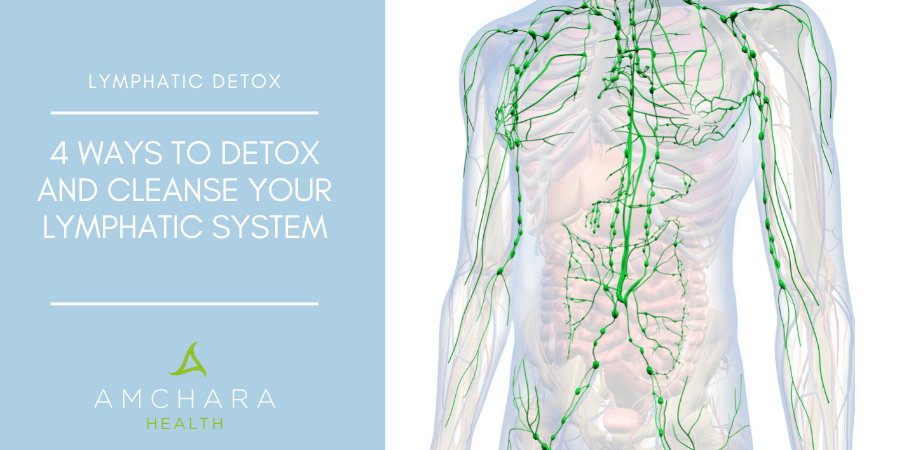Topics Covered in this article:
People have been fasting for millennia.
The most extreme kind of fasting is a water fast.
Modern science is studying whether fasting can have a beneficial impact on our health.
In this article, we will take a look at water fasting and its potential benefits to your health and lifespan.
What is Fasting?
According to Dr Mercola, fasting is defined as the abstinence from all or some foods or drinks for a set period of time.
We always take an evidence-based approach and aim to provide you with actionable knowledge and tips to help you on your journey to optimal health.
Remember that the advice given may not suit specific individual restrictions.
The History of Fasting
Fasting plays an important role in almost all religions and many cultures and dates back centuries.
It’s a time tested, ancient tradition, recommended by Pythagoras back in the 5th Century BC as well as Hippocrates, Plato and Socrates.
Fasting within a religious context is considered beneficial to mind, body and spirit, and in fact, it’s one of the five pillars of Islam.
However, there is a lot more to fasting than religious devotion.
Many people are wary of fasting, but it’s only relatively recently we’ve had unrestricted access to food.
Naturally w,e would have gone for periods when we didn’t eat due to necessity.
Nowadays we are programmed to eat three square meals a day, and we often do this automatically, even when we’re not particularly hungry.
We’ve even been conditioned to be scared of hunger, as if it was something dangerous.
In the animal kingdom, animals regularly fast, for example when they are ill or stressed, or when food is not available, so the question is, how can something so common in nature, religion and which has been practised for thousands of years be detrimental to our health?
The Marketing of Breakfast
Let’s think about breakfast.
As the name implies, it breaks a fast – in this case, an overnight one.
In the Middle Ages, breakfast was practically non-existent, with two meals per day being the norm.
In fact, it was considered gluttonous to eat breakfast, particularly as the Catholic faith forbade eating before morning Mass.
This persisted until the 17 th Century.
When breakfast became popular, there was a corresponding rise in digestive conditions such as dyspepsia.
In the 1920s, America, a PR guru called Edward Bernays persuaded the medical profession to recommend bacon and eggs as a healthy breakfast.
There was an ulterior motive to this – he was hired by a bacon producer.
The rest is history.
In the 1940s, breakfast cereals became increasingly popular, due in no small part to advertising campaigns claiming ‘breakfast is the most important meal of the day’.
What are the benefits of Water Fasting?
-
Could Water Fasting Aid Longevity?
A good deal of research explores the potential of fasting to extend lifespan.
In one study, (1) rats who were fed only every other day aged more slowly and lived an impressive 83% longer than non-fasting rats.
One study (2) used female mice, and found alternate-day fasting significantly increase lifespan, so the findings are relevant to both sexes.
It must be noted that current research is limited to animal studies, and further research is needed to understand how fasting impacts on human lifespan.
-
Could Water Fasting Help With The Reversal of Type 2 Diabetes?
One of the most notable benefits of fasting have been observed in patients suffering from type 2 diabetes.
The reason for this is that fasting influences our insulin levels which have a huge influence on our overall health and even our longevity.
The hormone insulin is made by our pancreas after eating in response to a rise in blood sugar.
Insulin’s job is to encourage cells to take glucose from the blood as an energy source.
Often insulin levels rise too high in response to eating sugary foods and processed carbohydrates.
This means eventually cells stop listening to insulin’s message, blood sugar does not reach the cells and blood sugar levels remain high.
This is called insulin resistance .
The body responds by pumping out more insulin to try to get the cells to respond and insulin levels remain high.
Then the sugar in the blood is converted to fat, making it difficult to lose weight.
Whilst all foods will raise insulin to some extent, by avoiding sugary foods and processed carbohydrates you can prevent levels swinging too high.
This could potentially help to reverse type 2 diabetes in some people but not all. It’s hard to actually lower insulin levels unless we stop eating.
During a fast, blood sugar and insulin levels will naturally reduce.
This means the body starts using fat as an energy source.
Not only will we will lose weight but over time insulin resistance could potentially be reversed.
It’s worth bearing in mind most studies on fasting have involved males.
One small study (3) found insulin resistance was not improved after three weeks alternate-day fasting in women, although it was significantly improved in men.
This study actually found that glucose tolerance was slightly worse in these women following the fasting period.
Clearly, more research is needed to determine the mechanisms at play that may explain this difference.
-
Cardiovascular Disease
Heart disease is a leading cause of premature death worldwide. Research has found fasting could be beneficial for heart health.
One study (4) looked at obese adults and found three weeks of fasting significantly decreased blood pressure, blood triglycerides and cholesterol.
Another study (5) looked at over 4,000 people living in Utah, USA, some of whom were followers of the Church of Latter-Day Saints, who incorporate regular fasting into their lifestyles.
These people were found to be at lower risk from coronary artery disease as well as diabetes.
The benefits of fasting were statistically significant even after taking into account other potentially complicating beneficial factors like smoking avoidance.
-
Autophagy
Autophagy is a natural regeneration process in the body in which old, worn out and dead cells, as well as bacteria and viruses, are degraded and recycled.
Autophagy, literally translated, means ‘self-eating’, and is the body’s waste disposal system.
Recently, autophagy has been recognised as a crucial system against degeneration and ageing.
Fasting triggers autophagy (6) in many organs including the liver and the brain.
Autophagy is thought to reduce inflammation (7) by influencing the development of inflammatory cells, as well as clearing out the products of oxidative stress.
Both inflammation and oxidative stress play a role in ageing. Problems with the autophagy process occur in most 21st Century diseases.
The body has a short-term supply of energy (like a savings reserve), stored in the liver and muscles as glycogen.
When we don’t eat, the body releases a hormone called glycogen to mobilise glucagon stores.
Research has found increased glucagon stimulates autophagy (8) and eating turns it off.
Growth Hormone
Fasting stimulates growth hormone (GH) (9), which is a hormone involved in growth and repair.
Growth hormone deficiency in adults can lead to increased body fat.
Levels of the hormone decrease with age, and scientists are interested in the role it plays in ageing.
However, it appears that too high a level of growth hormone is not good news, either, a bit like insulin, with which it has a delicate relationship.
Studies have shown that mice live longer when they are deficient in growth hormone.
A number of people in a remote population in Ecuador suffer from a genetic disorder called Laron syndrome, which prevents them growing any taller than 4 feet.
These people appear to be protected against diseases like diabetes, heart disease and Alzheimer’s, despite their diets often being high in carbohydrates and fat.
Although their levels of growth hormone are similar to the rest of the population, they lack receptors for the hormone.
They also have low levels of a substance called IGF-1, which stands for insulin-like growth factor.
Release of this substance is usually stimulated by growth hormone.
High levels of this substance, like insulin, have been inversely connected with longevity.(10)
The picture still remains unclear as to the precise relationships at present.
-
Stem Cell Regeneration
As we age, our stem cells lose their ability to regenerate.
A recent study showed age-related decline in stem cell function was reversed by a 24-hour fast.
The stem cells showed dramatic improvements in their ability to regenerate.
It’s thought that by switching the cells’ energy source from carbohydrates to fat, their function was improved.
-
Oxidative Stress and Inflammation
Oxidative stress is thought to contribute to the ageing process.
Fasting mice (11) have been found in studies to have lower levels of oxidative stress and inflammation in the heart.
This could be the result of fasting encouraging autophagy.
Since oxidative stress and inflammation are thought to play a role in cancer, it’s no surprise that one study (12) found the development of liver tumours was retarded by a 48 hour fast each week.
What about Muscle Wastage during Fasting?
One common worry is fasting will result in loss of muscle mass.
This doesn’t appear to happen in practise.
The body will preferentially burn fat before it turns to using its protein-rich muscles for energy.
There’s no doubt that in periods of starvation, muscle wastage occurs, but during a fast which lasts a matter of days, this isn’t likely to happen.
It’s thought that during fasting the body reduces a process called protein catabolism, in other words breaking down protein.
Although not a great deal of research has been carried out on this subject, some studies (13) have found less muscle loss occurs in fasting, rather than simple calorie restriction.
Muscle mass is much more closely connected with our levels of exercise than with our diet.
As we’ve seen, growth hormone, which promotes muscle mass, is released during fasting.
What will I feel like during a fast?
Because the body seizes the chance to have a good old clean out, you may feel temporarily worse than usual when you fast.
You’ll often experience physical symptoms like headaches, skin rashes, fatigue and so on, as well as emotional symptoms as the liver cleanses itself.
Many people worry about hunger pangs, which according to The Diet Doctor , tend to kick in on the second day of a fast.
However, often people are surprised how little they feel hunger.
People also often find fasting tends to increase their energy rather than leaving them drained.
Contraindications for Water fasting
The following groups of people should not undertake water fasting without medical support:
- Underweight
- Children
- Pregnant and breastfeeding women
- On medication of any description
- People with kidney problems or cancer
- Gout sufferers
Despite fasting having shown to be beneficial to diabetic patients, if you have diabetes, you should consult your doctor before trying a fast.
Beginners Guide to Water Fasting
Most water fasts last between 24 and 72 hours.
Don’t fast for longer than this without medical supervision.
As the name water fasting implies, you don’t consume anything but water.
Prior to the fast, you might want to reduce your coffee and tea intake so you don’t experience caffeine withdrawal during the fast, which can be pretty uncomfortable for some people.
It’s also a good idea to eat smaller portions of food than usual or avoid food for part of the day for three or four days before starting the fast.
You need to make sure you’re drinking sufficient water – aim for between one and three litres spread out through the day.
When you break your fast, don’t splurge out on a big meal, otherwise you’ll feel uncomfortable, and it could even be dangerous.
Have a smoothie or some light, raw food instead.
In Conclusion
Fasting could be potentially beneficial not only for weight loss, but regular fasts may even improve our health and longevity.
It can be hard to fast when surrounded by life’s edible temptations, but a stay at an Amchara retreat can help you to fast in a supported environment.
Time spent in beautiful sunny Gozo or picturesque Somerset can provide the ideal backdrop to your fasting experience.
Have you tried water fasting? How did it make you feel?
We’d love to hear from you!
MORE FASTING RELATED STORIES:
- Fasting for Gut Health
- How Much Water Should I Drink Per Day?
- Beneficial Effects of Fasting on Diabetic Patients
- Is Water Fasting Out Dated Now There is the Pretend Fast
- Intermittent Fasting – A Natural Way To Live For Longer
- Reverse Insulin Resistance with Intermittent Fasting
- New Year New You: Could Fasting Help You Lose Weight?






